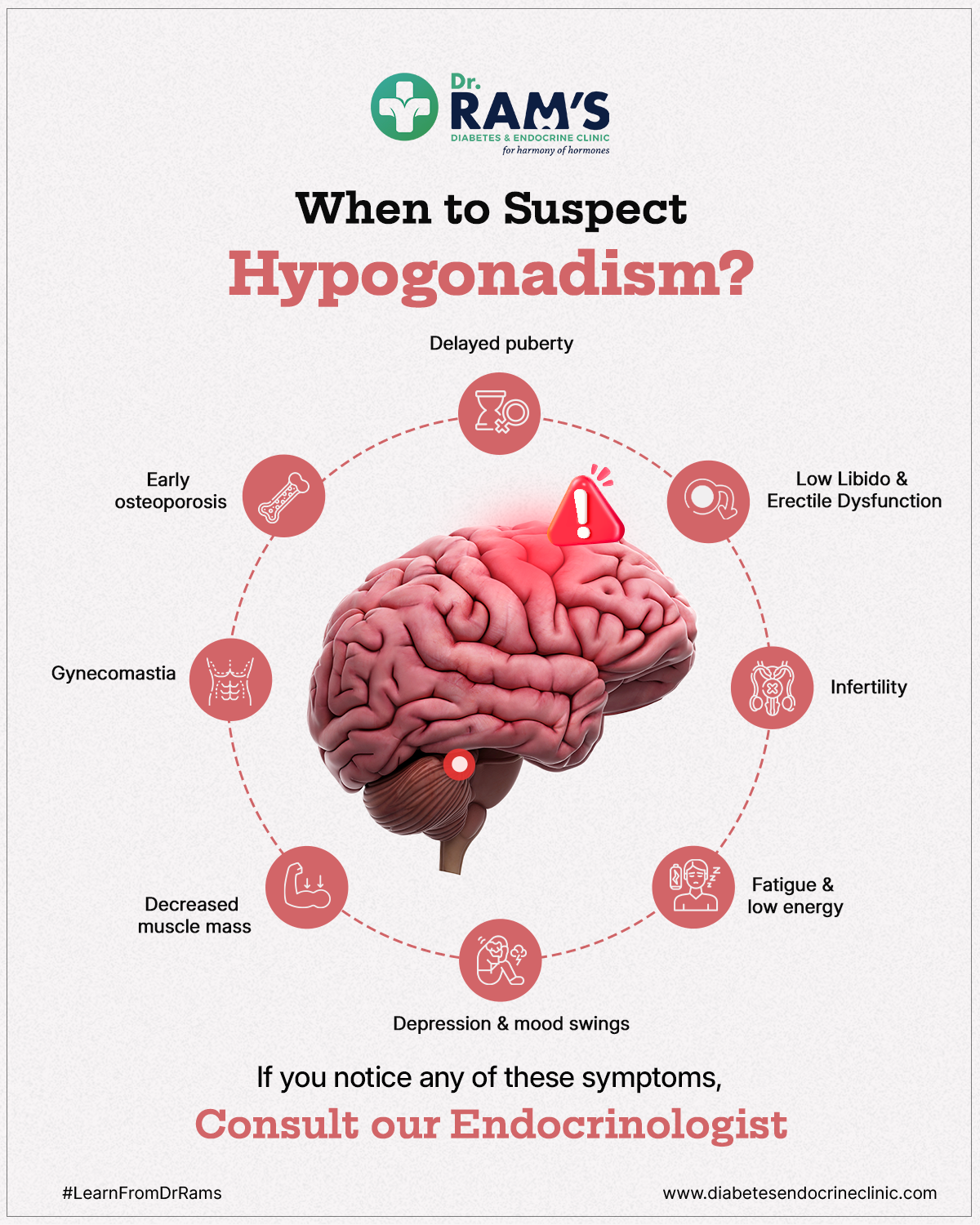Hypogonadism and Hormonal Health: When Should You Suspect a Deficiency?

Hormones serve as the body’s biochemical messengers, playing critical roles in growth, metabolism, reproduction, and overall homeostasis. Among these, the sex hormones—testosterone in males and estrogen/progesterone in females—are central to both reproductive and systemic health. A deficiency in these hormones, known as hypogonadism, can lead to a wide array of physiological and psychological complications.
Despite its broad impact, hypogonadism often goes underdiagnosed due to its gradual onset and the non-specific nature of its symptoms. Understanding the signs, causes, and management strategies is key to improving quality of life and long-term health outcomes.
What is Hypogonadism?
Hypogonadism refers to a condition in which the gonads (testes in males and ovaries in females) produce insufficient levels of sex hormones. It may be classified as:
-
Primary Hypogonadism - A dysfunction of the gonads themselves.
-
Secondary Hypogonadism - A result of impaired signaling from the hypothalamus or pituitary gland.
The condition may be congenital or acquired and can affect individuals at any stage of life, from adolescence to older adulthood.
Hormonal Regulation and Its Systemic
Sex hormones extend far beyond reproduction. Their functions include:
-
Bone health: Estrogen and testosterone regulate bone mineral density. Deficiency can lead to early-onset osteoporosis.
-
Muscle mass and strength: Anabolic effects of testosterone support protein synthesis and muscle maintenance.
-
Mood and cognition: Sex hormones influence neurotransmitter systems involved in mood regulation, such as serotonin and dopamine.
-
Metabolic function: Hormonal imbalances may contribute to insulin resistance and altered lipid metabolism.
-
Pubertal development: In adolescents, delayed or absent puberty may be the first indication of hormonal deficiency.
Clinical Manifestations: When to Suspect Hypogonadism
Patients may present with a wide spectrum of symptoms, often subtle and progressive. Key indicators include:
-
Delayed Puberty Absence of secondary sexual characteristics during adolescence.
-
Low Libido and Erectile Dysfunction One of the earliest symptoms in adult males, often misattributed to psychological stress.
-
Infertility Reflecting impaired gametogenesis due to hormone deficiency.
-
Fatigue and Decreased Vitality Often overlooked but significant in affecting quality of life.
-
Depression and Mood Instability Low sex hormones can dysregulate central nervous system pathways affecting mood.
-
Reduced Muscle Mass and Strength Especially notable despite regular physical activity.
-
Gynecomastia In men, excess estrogen or low testosterone may result in the development of breast tissue.
-
Osteopenia or Early Osteoporosis Particularly concerning in younger adults, increasing the risk of fractures.
The Endocrinological Perspective: Diagnosis and Evaluation
Diagnosis involves a comprehensive hormonal panel, including:
-
Serum testosterone (total and free levels)
-
Luteinizing hormone (LH)
-
Follicle-stimulating hormone (FSH)
-
Estradiol (in females)
-
Imaging of the pituitary gland (if secondary causes are suspected)
A morning blood sample is preferred for testosterone assessment due to its diurnal variation.
Treatment and Management Strategies
Management depends on the underlying cause and severity. It may include:
-
Hormone Replacement Therapy (HRT) Testosterone replacement in males (via injections, gels, or patches) or estrogen/progesterone therapy in females.
-
Addressing Secondary Causes Treating pituitary tumors, obesity, or systemic illnesses that contribute to hormonal suppression.
-
Lifestyle Modifications Weight management, resistance training, and stress reduction can enhance hormonal responsiveness.
-
Long-term monitoring is essential to assess therapeutic response, adverse effects, and potential complications like erythrocytosis or prostate changes in men.
Conclusion: A Systemic Condition Deserving Greater Awareness
Hypogonadism is not merely a reproductive disorder—it is a multisystemic endocrine condition with broad implications. Early recognition and intervention can prevent long-term complications such as osteoporosis, metabolic syndrome, and psychological distress.
At Dr. Ram’s Diabetes & Endocrine Clinic, our multidisciplinary approach ensures thorough evaluation and individualized treatment plans tailored to restore hormonal balance and overall wellness.
If you or someone you know is experiencing any of the above symptoms, consider a comprehensive hormonal evaluation. Optimal health begins with hormonal harmony.
📍 To learn more or schedule a consultation, visit: www.diabetesendocrineclinic.com




